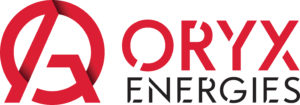The Voice of Blaise Edja, Downstream Manager West Africa, Oryx Energies
The Voice spoke with Blaise Edja, Downstream Manager West Africa, Oryx Energies and WLPGA Board member, to hear his thoughts and goals for Oryx Energies.
 Please tell us a little about Oryx Energies and its LPG activities
Please tell us a little about Oryx Energies and its LPG activities
Oryx Energies is one of the most reliable, extensive and integrated downstream platforms in sub-Saharan Africa, delivering on our commitment to serve the energy needs of Africa.
For over 30 years, we have accumulated extensive experience, knowledge and expertise. Today we have over twenty operational sites and offices situated across East and West Africa.
We source, store at strategic locations and distribute the oil and gas products needed by consumers, industry and maritime operations across the African sub-continent. Efficient logistics and strong distribution networks, including our own retail service stations, complete the picture.
Oryx Energies occupies a leading position in LPG (Liquefied Petroleum Gas) in sub-Saharan Africa and has been promoting it as an ideal energy alternative in the region for over 20 years.
As part of its LPG growth journey across Africa, Oryx Energies aspires to seize the LPG development opportunities which emerge, especially in the domestic and agriculture segments. To do this, Oryx Energies intends to keep developing LPG storage and filling plant infrastructures within its key markets so that reliable LPG offerings could be made more accessible and available to a larger part of the population. In parallel, Oryx Energies intends to strengthen its safety and LPG awareness campaigns to help unlock domestic LPG cooking usage in a safe and sustainable way, especially within the rural areas.
Could you please tell us a little about your career path to get you here?
I started my career in the oil industry at Total Côte d’Ivoire as Technical and Maintenance Deputy Manager in May 1996 and six months later I was appointed as the Head of the LPG Department.
About five years after this first experience in the LPG industry, I joined Shell Côte d’Ivoire as General Manager Shell Gas (LPG). I joined Oryx Oil & Gas (AOG’s former downstream division) in February 2005, a few months after it purchased Shell’s LPG business and assets in Côte d’Ivoire, which I was managing. I spent over six years as Managing Director of the three Oryx Energies affiliates in Côte d’Ivoire, before moving to Geneva in 2011 to occupy the position of General Manager LPG. So I have been involved in the LPG industry for almost 24 years.
For the last 10 months I have been in charge of all the downstream activities of Oryx Energies in West Africa.
How is LPG Oryx Energies responding to the current coronavirus crisis?
At Geneva HQ, since the week of 16 March 2020, the company has been practicing social distancing and personnel have been working from home. Remote teams are fully set up and prepared for business continuity. All the employees are reachable through emails, mobile phones and video conferences.
In the meantime, some field operations and offices are still running thanks to our amazing people, and we have put measures in place to secure they are working safely and according to the local authority’s recommendations.
I am pleased to say that appropriate measures have been put in place by the management team in Geneva, and in our affiliates, to continue to respond to our customers’ needs in a safe manner during this crisis which is best described as ‘uncertain’. I would like to thank all my colleagues, as well as the authorities and the medical staff in the different countries, who are working hard in this unprecedented situation.
How do you feel this is affecting the LPG industry?
This crisis is affecting many companies in the world and I think the impact will last for a long period of time. The LPG industry is not an exception in all of this but is better placed than some other industries.
Following decisions from most governments worldwide, people are in quarantine and this creates more demand in LPG as a household fuel, especially for cooking. This is seen in most markets where the demand for LPG cylinders from households is not only maintained, but in some cases the demand has increased. This increase in demand is partly due to buffer stocks built up by customers who fear shortages and we expect the normal trend to be established once the situation reverts to normal. The LPG distribution companies should ensure that the product is available to respond to the customer’s demand. Fortunately, from my knowledge, governments see LPG as an essential commodity and are encouraging the LPG distribution companies to maintain operations and contribute to facilitating people’s lives during this difficult situation.
On the other hand, we noticed a decline in autogas, industrial and commercial demand due to the measures put in place by governments.
One of the big questions surrounds the supply of LPG and the ability of the industry to meet consumers demand. With the fall in oil product demand, some refineries may shut down, or reduce their production, with the immediate consequence of reduced LPG output.
Before this pandemic, forecasters were predicting a surplus of LPG over the next 10 years and this hasn’t really changed. In the short term however we do expect much uncertainty and anxiety during the current crisis. But by the time the confinement measures are removed we hope the role of LPG will be appreciated more.
How do you think this may change our industry?
Because of the containment measures taken by most governments to stop the spread of the Covid-19, most economies are facing severe challenges. Most businesses have closed, and those employees who continue to work and working remotely. The current crisis has already imposed on us new ways of working with webinars replacing in-country events for example. Within our industry, certainly some companies are more vulnerable to the impact of the crisis than others, but we all should stay united around the WLPGA which is providing guidance and information on the pandemic. The information exchange platform launched by the WLPGA in response to the Covid-19 crisis is a very good initiative which we welcome.
I learnt from oil markets experts that the contraction in oil demand will continue through the coming two months. Even if recovery is assumed to begin after this period, the impact of the crisis on many businesses will continue to affect the demand until the end of 2020 and maybe through 2021.
In such a difficult context, I think our industry must think quickly and strategically about solutions to address potential disruption and changes. One good example is the way air quality has improved in cities such as New Delhi and Beijing following the controls on people movement and industry during the pandemic. Perhaps the world will not want to experience those dirty conditions again and LPG is very well placed, with its low carbon footprint, to take advantage of this.
After the lockdowns have been removed, customer habits will change. It essential for us to propose solutions to the customer with a longer-term perspective.
How should an Association like WLPGA adjust in a post-Covid-19 world?
The theme of the three-year strategic plan “Solutions for a Responsible Energy Future” shows the concerns of the WLPGA about subjects such as government regulation, energy decarbonization and the position of LPG in the energy future. These topics are more existential concerns for a responsible association like the WLPGA.
I think the Association should go beyond its main objective of providing value to its members - which it does very well - by helping public authorities to better understand the industry and to help them set up appropriate regulations.
Provision of LPG is seen as an essential service and therefore operations are still being carried on during lockdowns, but governmental guidance varies from country to country. If the Association is known and respected as an organization that can be consulted by governments on all subjects related to LPG, this will be great. In the current crisis, the WLPGA should provide advice to governments on contingency plans and to businesses on business continuity plans. But that assumes the Association has already worked on scenarios and models on such plans.
I am not sure that outside the industry it is well known that since 1989, the WLPGA has had official Consultative Status with the United Nations Economic and Social Council (UN ECOSOC). This is an important recognition that the Association should exploit.
The crisis has created new realities that require the Association to define a corresponding set of priorities.
